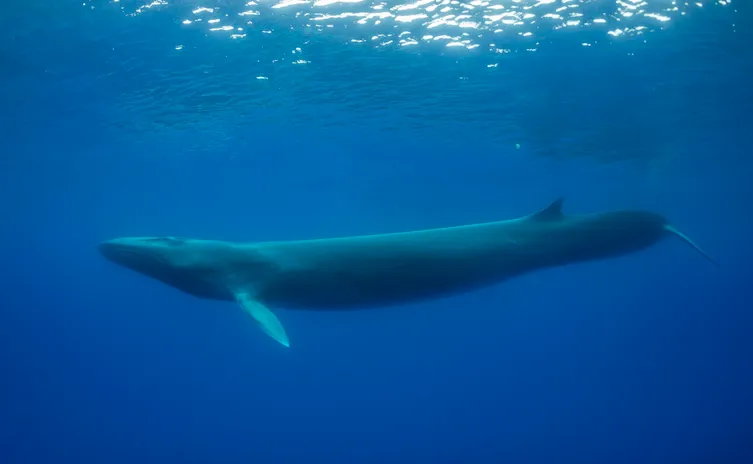Japan has announced that it will start commercially hunting fin whales – a species listed as vulnerable to extinction.
Unsurprisingly, conservationists are highly critical. “The decision to increase whaling quotas, particularly targeting vulnerable species, is irresponsible and exacerbates the risk of extinction,” says Luke McMillan, anti-whaling campaigner at Whale and Dolphin Conservation (WDC).
- Japanese company is selling whale meat from vending machines
- Why is whale poo good for the planet?
- Whales have their own alphabet, finds study
Since Japan left the International Whaling Commission and resumed commercial whaling in 2019, it has been focused on hunting three species: minke, Bryde’s and sei whales.
Both minke and Bryde’s whales are currently considered ‘of least concern’ by the IUCN Red List of Threatened Species while sei whales are endangered. In 2021, its catch quota was 171 minke whales, 187 Bryde's whales and 25 sei whales.
Now, vulnerable fin whales will be added to the country’s list of commercially caught species.
“Targeting already vulnerable species is an irresponsible act – especially in view of the existing biodiversity crisis,” says McMillan, who believes the move “undermines global efforts to protect marine biodiversity.” He fears this new threat – which adds to existing pressures from things like pollution, climate change, shipping traffic and underwater noise – will further increase fin whales’ risk of extinction.

“Whales are an important food resource and like other marine living resources they should be used sustainably based on scientific evidence,” said Japan’s Chief Cabinet Secretary Yoshimasa Hayashi in a statement, adding “I believe it is important to preserve traditional food culture in Japan.”
However, WDC argues that industrial whale hunting only picked up in Japan after the Second World War when there was a shortage of other meat. The charity is also sceptical of the idea that Japanese people want to eat whale. “Locally caught as well as imported whale meat is piling up in freezers as the demand is insignificant,” says McMillan.
“The consumption of whale meat is so low, it doesn’t even really appear in the statistics,” says McMillan, adding that Japan has invested significant resource in increasing the popularity of whale meat within the country.
“They even started setting up vending machines across some bigger cities in Japan, where people can easily buy whale meat products. The plan is to increase the number of these vending machines and to place them all around the country,” he says.

There are currently just three nations left in the world that still commercially hunt whales: Japan, Norway and Iceland (which has one remaining whaling company). According to McMillan, Iceland has no domestic market for fin whale meat and used to sell it to Japan. “Japan being able to hunt fin whales on their own would make them less depending on imports from Iceland,” he says. Could this spell the end for Iceland’s last whaling vessel?
Conservationists are still concerned about the threat posed by whaling, with Japan starting to hunt fin whales and Norway increasing its minke whale quota despite decreasing domestic demand.
The impacts of climate change – which could lead to more poverty and hunger – could drive some people to turn to whales for food. “We cannot rule out that people (in developing countries) will become increasingly interested in the use of wild animals – such as whales and dolphins – as a resource,” says McMillan, even though eating whales and dolphins can be dangerous to humans because of the high levels of mercury contained in the meat.
As it stands, could we see the end of commercial whaling? Perhaps, says McMillan, but not for the reason we’d hope: “It’s more likely that whaling will end due to serious declines or even extinction of whale populations or species, or the dire consequences their loss will have on marine ecosystems and other marine species.”
More marine stories:
- Killer whales are using dramatic hunting techniques to catch large marine animals in California
- Unusually high levels of fin whale DNA found in blue whale genome, finds study
- “It’s one of those moments where you see the full circle of life on the reef." Baby orca stuns Aussie pilot
- Astonishing deep-sea 'galaxy', underwater mountains and coral gardens discovered off the coast of Chile

